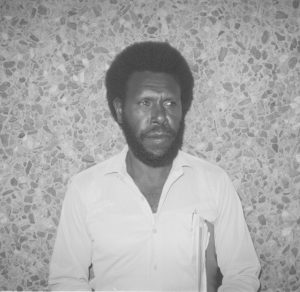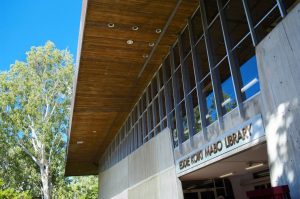Introduction
About this book

Bindal Elder and Traditional Owner, Professor Gracelyn Smallwood AM, tells a story of her undergraduate studies at James Cook University. As she related in the Welcome to Country opening the 2022 Mabo Lecture, she and her friends were once pulled aside by Eddie Koiki Mabo, who was working as a groundsman at the university at the time.
Uncle Koiki was the gardener, and he pulled me up one day and said “What do you do out here?” and I said “I’m studying uncle.” He said, “Well I’m the gardener and I’m in the library more than you…”
Eddie Koiki Mabo worked at James Cook University as a gardener from 1967-1975. During this time he frequently visited the library to research a variety of subjects. He was a man with little formal education, but a keen scholar who made use of the opportunities he had while working at the university to attend lectures and use the library.
Noel Loos (1996) reflected:
For a time you could always find Koiki in his lunch hour, in work clothes, poring [sic] over Haddon’s six-volume Reports of the Cambridge Anthropological Expedition to the Torres Strait. He was totally unaware of the incongruity, in those days, of an uneducated black gardener, in an all-white elitist institution, using his lunch hours to check out the findings of a group of revered white English academics. Or if he was aware of it, he didn’t care. (p. xv)
The connection between Eddie Koiki Mabo and the library on the JCU Townsville campus (now known as the Bebegu Yumba Campus) is a strong and celebrated one. Mabo worked as a groundsman on campus as the library building was being constructed, and planted many of the trees and shrubs in the original landscaping – some of which are still there today. Mabo went on to work as a research assistant and taught classes at JCU. He later gave a presentation at the ‘Land Rights and the Future of Australian Race Relations’ Conference hosted by the JCU Student Association that outlined many of the arguments that became part of his case.
In 2008, to honour Mabo and the part of his story that unfolded on the JCU campus, the library was named the Eddie Koiki Mabo Library. The next year, the first Eddie Koiki Mabo Library Art Exhibition was held at the library, featuring the works of Koiki’s daughter, accomplished artist and public speaker Gail Mabo.
To mark the 50th anniversary of James Cook University in 2020, the Mabo Timeline Interpretive Wall was established in a redesigned section of the library’s ground floor. This timeline documents the life and achievements of Koiki Mabo, as well as the history of the library bearing his name. A previous timeline displayed on the first floor of the library and available in PDF since 2008 provided the basis for the Interpretive Wall, which greatly expanded on these resources and is supplemented by an accompanying Library Guide linking to further resources.
In 2022, to mark the 30th anniversary of the Mabo decision, this book was developed based on the material gathered for the Interpretive Wall. With this book we hope to provide a greater focus on the timeline of Eddie Koiki Mabo’s life, the Mabo decision and the ways in which Eddie Koiki Mabo has been honoured and celebrated over the past few decades. As well as illustrating Mabo’s life and making connections with other resources for further reading, the book contains accompanying educational material available under a Creative Commons license for use in schools all over the world.
This book is not a comprehensive biography of Eddie Koiki Mabo, but an overview of his life, the Mabo case and the way Mabo and his wife, Bonita, have been honoured over the past 30 years.
This book has been made freely available, but due to the personal and cultural concerns of the various families who have given us permission to use their photos, the text and images of the book itself are not to be copied, distributed or altered without permission. Certain chapters are available under a Creative Commons license, so please check the licensing for each chapter.

